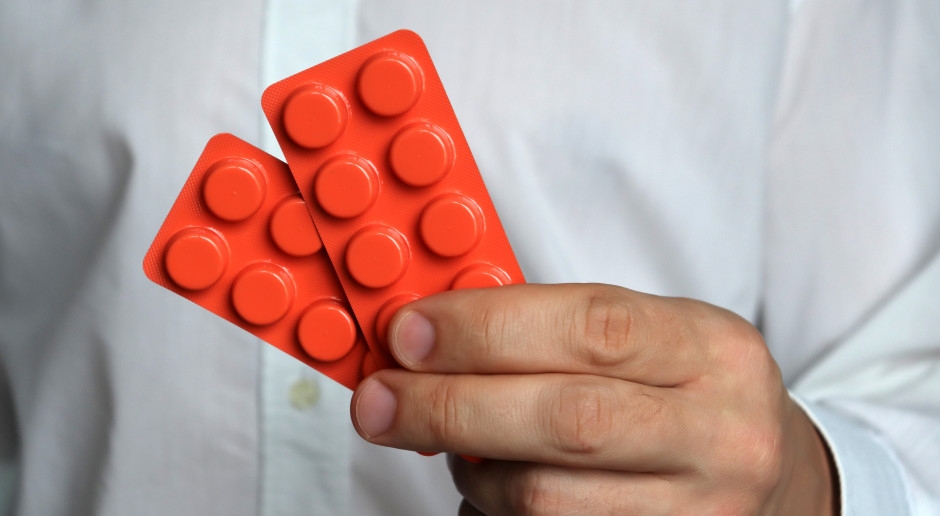"Europe in a Crisis of Common Sense" – What the STADA Health Report 2025 Reveals About Our (Un)Healthy Habits and Emotions

Europeans increasingly understand that health is an investment, but they still rarely translate knowledge into action. The latest STADA Health Report 2025, covering over 27,000 respondents from 22 countries, reveals a dramatic gap between awareness and practice – 96% of respondents consider a healthy lifestyle important, but only half actually live by its principles. Experts emphasize: it's not a lack of knowledge, but a lack of motivation, time, and systemic support. We know what this looks like in Poland.
According to the STADA Health Report 2025 , 96% of Europeans say a healthy lifestyle is important to them, but only 51% actually practice it. This is the largest gap between knowledge and action in the survey's history.
Ricardas Grazulis, CEO of STADA Pharm, emphasizes:
Health is much more than the absence of illness—it's the daily choices that shape our well-being, relationships, and energy. Europeans are increasingly understanding the importance of prevention and well-being, but they still need simple, accessible tools to help them translate this knowledge into practice.
The biggest barriers to health care remain lack of motivation (41%), lack of time (31%), and cost (28%). In Poland, as many as 51% of respondents admit they are unable to maintain healthy habits – a higher figure than the European average.
Although 64% of Europeans believe that their mental health is essential for well-being, a staggering 66% have experienced burnout, and only 17% have sought professional help. In Poland, one in four respondents cites occupational stress and financial concerns as the main causes of mental health problems.
Prof. Mariusz Gujski , Dean of the Faculty of Health Sciences at the Medical University of Warsaw, points out that mental health is still not treated with due seriousness:
Three in five people believe we still don't take mental health as seriously as physical health. Prevention of mental disorders is still poorly embedded in our consciousness. Shame and stigma persist, and the loss of family ties and lack of time together exacerbate the problem .
Prof. Mateusz Jankowski, head of the Department of Population Health, Center for Postgraduate Medical Education, adds:
Despite growing awareness of well-being, we are still afraid to ask for help. Nearly half of Poles don't know where to turn for help if they experience mental health problems. Building self-help groups within families and local communities is crucial.
The report shows that 30% of Europeans struggle with burnout. For Wojciech Lewiński , Director of the Hospital Department at STADA Poland, this phenomenon goes far beyond the realm of individual emotions and is not isolated:
Burnout isn't just an employee's personal problem—it's a real social and economic challenge. Work takes up a third of our lives, so the workplace must be a space where emotions, stress, and boundaries can be discussed. In mature organizations, employee mental health becomes part of the culture—not an adjunct.
Lewiński points out that it is crucial to change the perception of health in the workplace – from an obligation to a shared value.
It's not about creating more programs or campaigns, but about a genuine shift in thinking. It's about a culture of support in which leaders lead by example and teach that rest, conversation, and balance are not luxuries, but a prerequisite for effectiveness.
Only 20% of Europeans regularly use all available preventive screenings, and 34% do not undergo them at all. In Poland, the situation is even worse – only 10% of respondents engage in comprehensive preventive screenings.
Prof. Mariusz Gujski emphasizes:
Half of those surveyed believe that prevention is the key to peace of mind and a long life. More and more people want to take care of themselves, but they need systemic support and simple solutions that will allow them to incorporate prevention into their daily lives.
Three-quarters of Europeans use dietary supplements, primarily for immunity and energy. At the same time, 31% smoke cigarettes, 34% drink alcohol weekly, and 84% of Poles regularly consume coffee and energy drinks. Professor Gujski emphasizes that 2.5 million people in Poland are addicted to alcohol, yet the state has retreated and is taking no action.
Prof. Mateusz Jankowski notes:
On the one hand, the popularity of supplements and awareness of the importance of health are growing, but on the other, behaviors that undermine this persist. We reach for stimulants not out of ignorance, but out of a need for temporary relief. It's a risky strategy that weakens the body and mind.
The expert calls for a return to the basics: regular sleep, hydration, taking breaks from work and avoiding excessive caffeine stimulation.
These micro-decisions have a greater impact on health than many supplements, concludes Prof. Jankowski.
The report shows that despite the growing interest in artificial intelligence in medicine, 69% of Europeans trust primary care physicians and 58% trust pharmacists – much more than algorithms.
Ricardas Grazulis notes:
Trust in experts remains the foundation of the healthcare system. Technology can support physicians, but it cannot replace human contact, empathy, and experience.
The results of the STADA Health Report 2025 show that Europeans are maturing their commitment to health, but they still need support, motivation, and simple tools. Public health is no longer the sole domain of the state—it's becoming a shared social project.
Prof. Mariusz Gujski summarizes:
Health is not an individual obligation, but a shared value. We need not only knowledge but also a culture of health—based on cooperation, trust, and daily choices that truly matter.
Updated: 29/10/2025 20:26
politykazdrowotna






